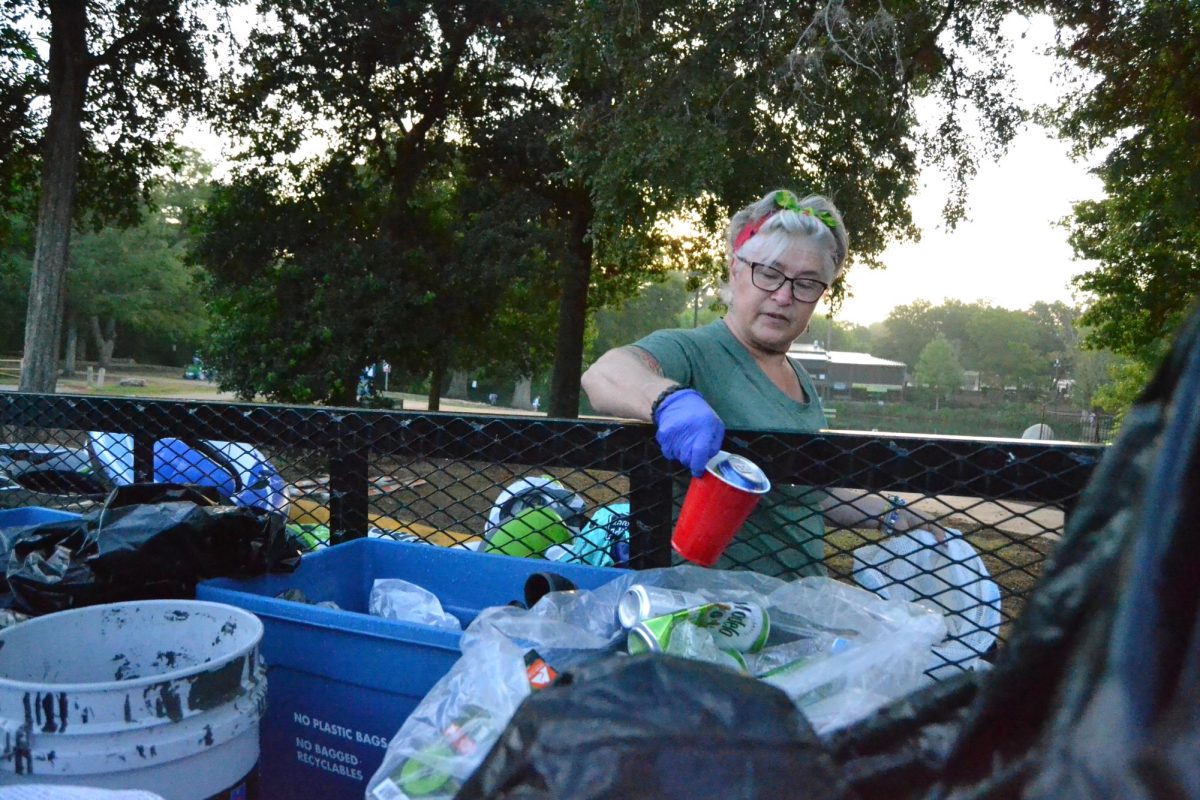College life can be tough for those with disabilities not visible, but a canine sidekick can help make it a little easier.
Bruce Coonce, Office of Disability Services assistant director, said a service animal is a dog that is trained to perform a specific task for a person’s disability.
“Service animals are more than just the presence of a dog for a source of emotional comfort; they perform a task,” Coonce said. “People will go to online registries (for an emotional support animal) and think that allows them to take their dog anywhere. Those facts are bogus actually.”
Coonce said students with service animals are not required to have them registered with the school, but is encouraged.
Lauren Gordon, music education freshman, has had her medical service dog, Taluka, for about a year and a half. Taluka helps Gordon monitor her glucose levels for her type one diabetes. Gordon said Taluka can smell it on Gordon’s breath when her blood sugar level is high or low and is able to alert her.
“Dogs have a sense of smell that is like a world we don’t even know,” Gordon said.
Gordon said the universal problem for people with service animals is strangers petting the animal without permission.
“For Taluka, her job doesn’t stop,” Gordon said. “At any second, I could drop, or something could happen.”
Gordon said when someone pets her animal without permission it could result in the dog’s distraction and the failure to help Gordon if an emergency occurs.
Gordon said she had reoccurring seizures at night her senior year of high school that led her to get a service dog for college. Taluka is Gordon’s best friend and she performs a service that is vital to her health.
“An analogy I like to tell people is that if you see someone walking down the street with crutches, you don’t go up to them and take their crutches,” Gordon said. “In a way, you’re taking away a person’s medical equipment.”
Taylor Baxter, general studies senior, has a psychiatric service dog named Sophie to help her with complex PTSD and generalized anxiety. Sophie is half dachshund and puts her long nose to good use.
Baxter said Sophie is scent-trained to smell and react to cortisol levels, a hormone the body produces when one is stressed or anxious.
Baxter said Sophie is trained in deep therapy pressure which is where the weight of her body has a calming effect on Baxter. Sophie is also trained in body blocking where she stands behind Baxter if a room is crowded and keeps space between her and other people.
Baxter said the biggest issue in public is when people come up and touch Sophie without permission.
“She’s trying to do her job, but it distracts her,” Baxter said. “It’s frustrating because it’s hard enough for me to go out and do a normal thing. It takes a lot of energy to just go grocery shopping, so then it makes my life harder to have people all up on me excited that I have a dog.”
Baxter said there seems to be confusion around the difference between an emotional support animal and a service animal, especially with a psychiatric service animal.
“The legal difference is task training,” Baxter said. “The human has to be considered disabled by their illness, needs or mental illness. Then, the dog has to be specifically trained (for) tasks to mediate the disability and help make it better.”
Baxter said emotional support animals are not trained and only there to comfort the human with their presence.
Service animals are intended to assist humans with medical disabilities and perform an essential role in their owner’s lives. They stand as service animals first before anything else.
Understanding service dog etiquette
March 25, 2018

Taylor Baxter and Sophie, captured by Wolf and Rose Photography, courtesy of Baxter.
Donate to The University Star
Your donation will support the student journalists of Texas State University. Your contribution will allow us to purchase equipment and cover our annual website hosting costs.


















